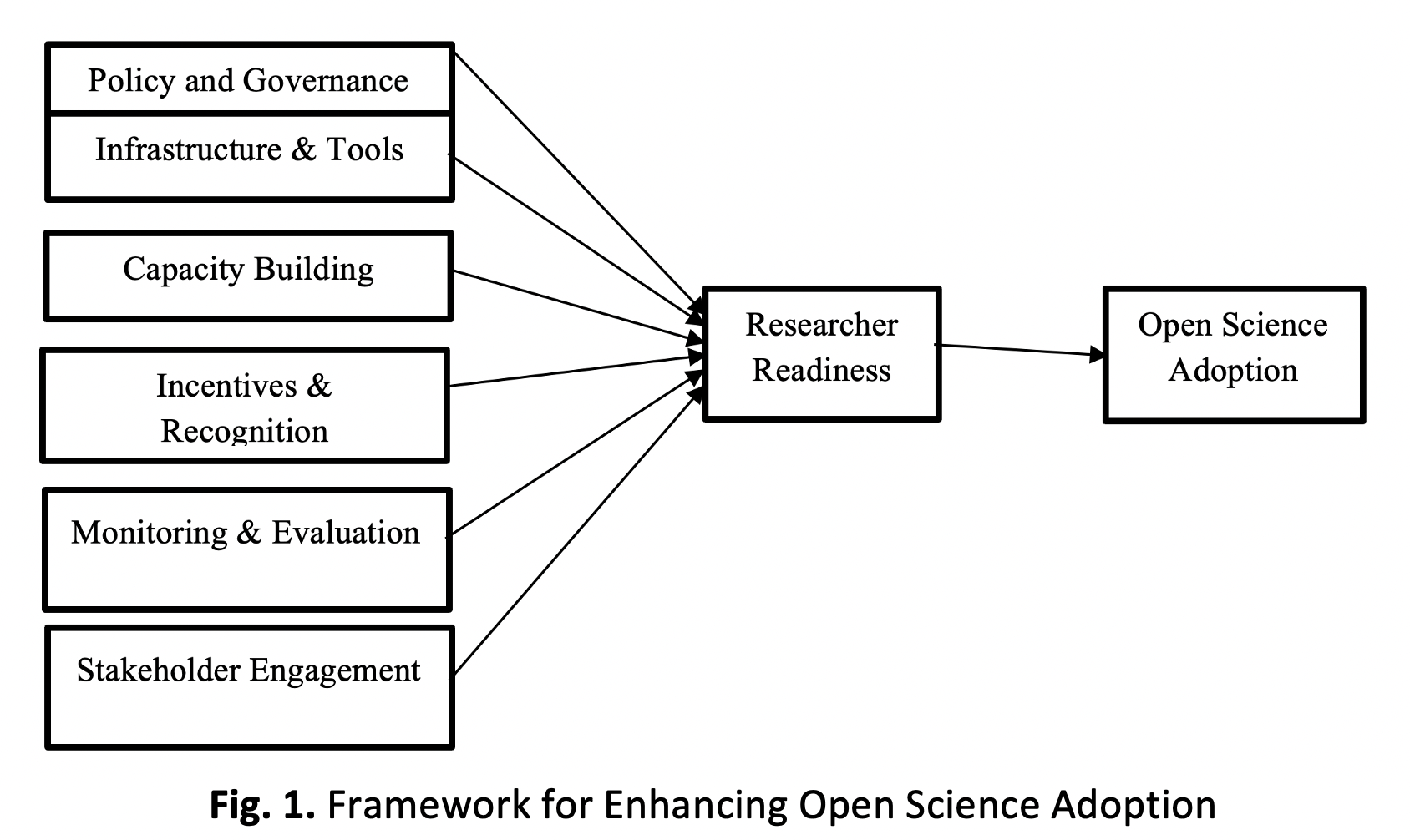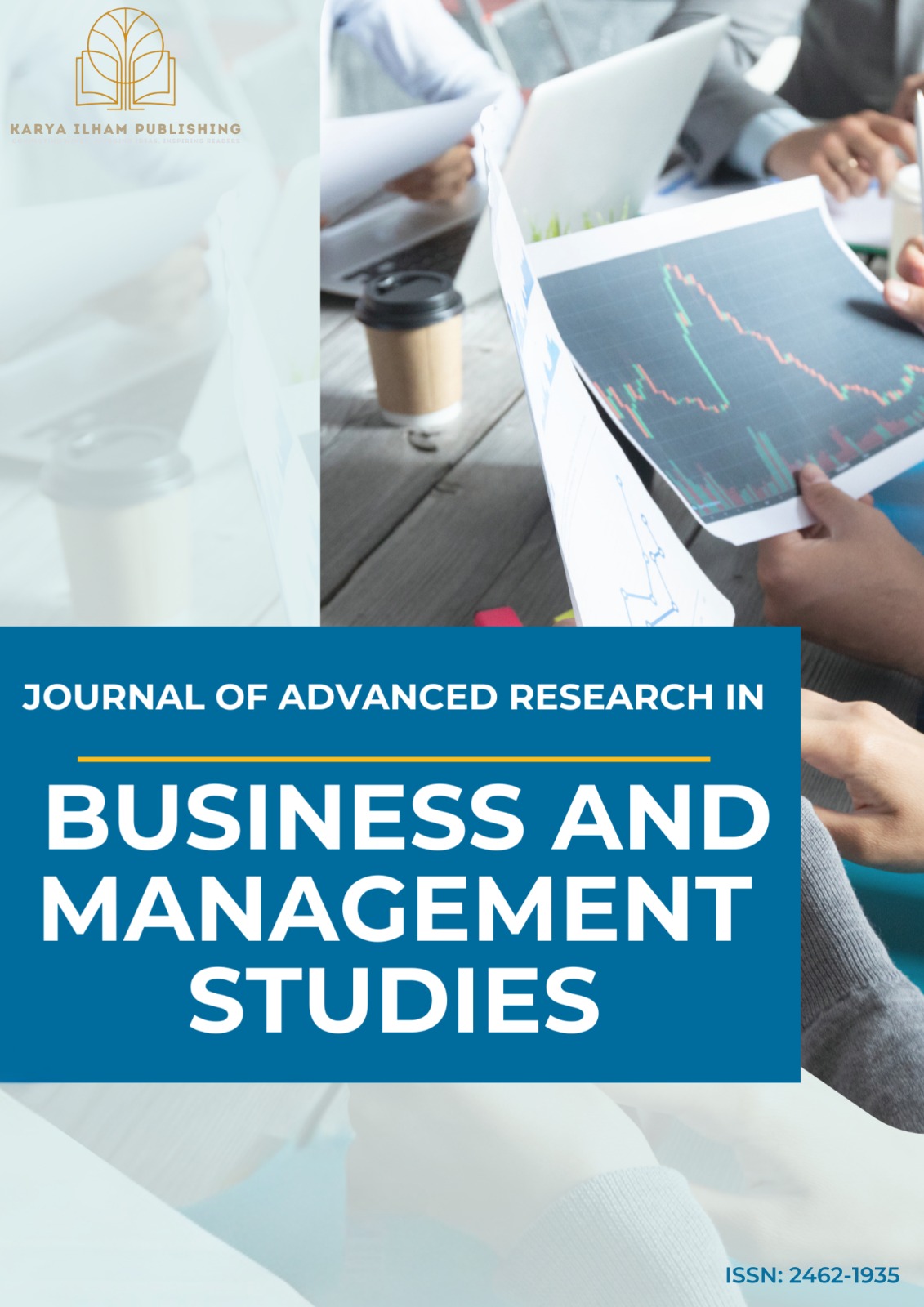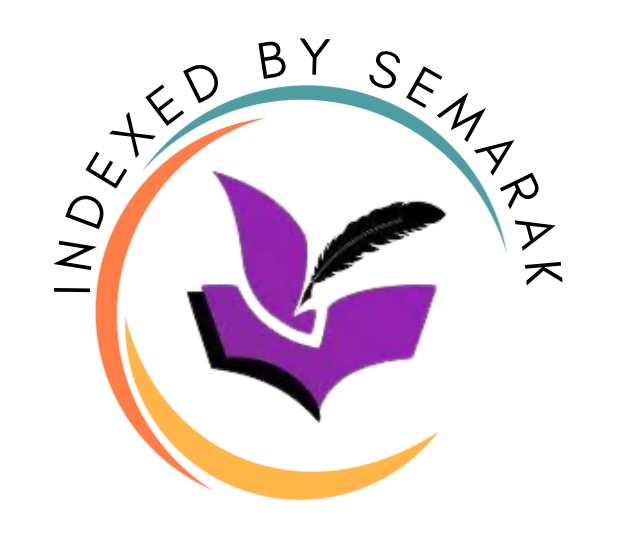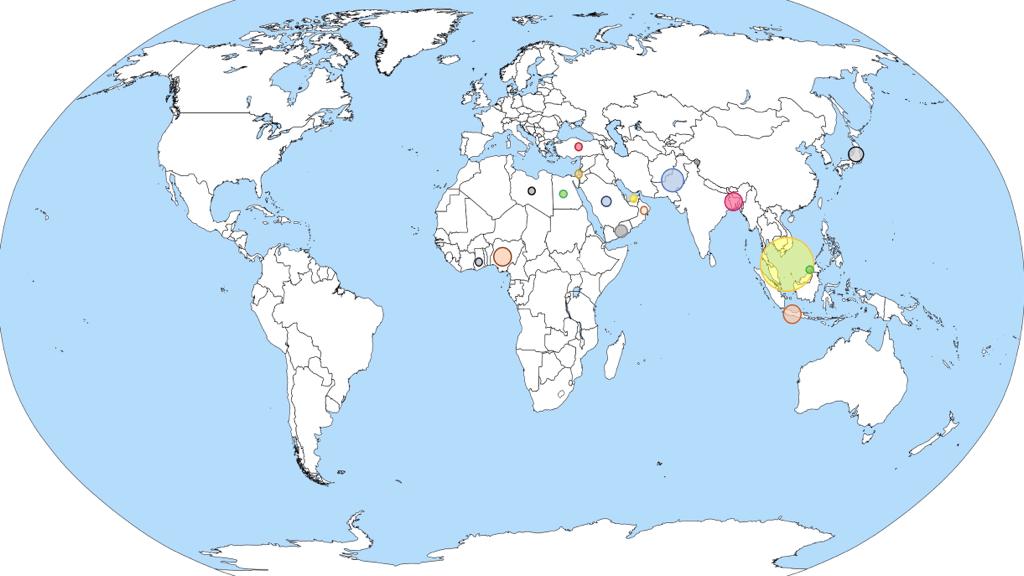Determinants of Open Science Adoption in Malaysian Public Universities
Keywords:
Open Science, Malaysian Public Universities, Malaysia Open Science Platform (MOSP), intellectual propertyAbstract
This study investigates the factors affecting the adoption of Open Science (OS) practices among researchers at Malaysian public institutions. Notwithstanding worldwide progress towards open science—improving research openness, accessibility, and collaboration—implementation in Malaysia is still disjointed. National efforts such as the Malaysia Open Science Platform (MOSP) exist; however, their implementation is impeded by institutional and human obstacles. This study used a mixed-methods approach to identify key challenges: unclear regulations, inadequate infrastructure, absence of incentives, poor researcher preparedness, and little stakeholder participation. The results indicate that while academics often support open science ideals, apprehensions over data abuse, uncertainty in intellectual property, and insufficient acknowledgment hinder measures such as open data sharing and pre-registration. In addition, progress is further impeded by institutionally misaligned academic reward systems, ineffective policy enforcement, and inconsistent technical support. Research visibility, competitiveness, and ranking performance in Malaysia are all significantly impacted as a result of these restrictions.













